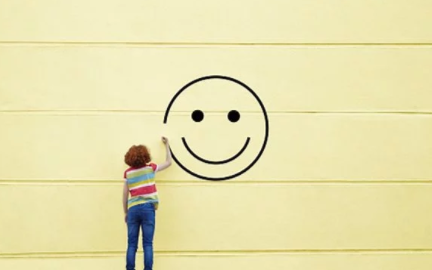—they look back and see an exciting event in the story of their lives.
But it doesn't seem to improve day-to-day happiness very much.
This is true for us non-lottery-winners too.
對我們這些非彩票中獎?wù)叨砸彩侨绱?/div>
Income and daily emotions like happiness and stress
收入和日常情緒——比如快樂和壓力
seem to be closely related until you're comfortably middle-class.
似乎緊密相關(guān),直至成為小康之家,收入對情緒的影響才會變小。
And that makes sense if you can make sure your bills are paid, see a doctor if you need one, and enjoy some free time.
如果你能確保支付賬單,生病時去看醫(yī)生,享受閑暇時光,這樣就說的通了
According to a study in 2010 on over 450,000 people,
根據(jù)2010年的一項研究,受試者超過45萬人
that happens at right about $75,000 a year in the United States.
他們在美國的年薪約為75,000美元
After that, life satisfaction keeps going up,
此后,他們的生活滿意度持續(xù)上升,
but money and status alone don't do much for day-to-day emotions.
但金錢和地位本身對日常情緒沒有太大作用。
So how do you spend your hard-earned money to really make you happy?
那么如何花辛苦賺來的錢讓自己開心呢?
Psychologists have found a couple patterns that we might all be able to learn from.
心理學(xué)家已經(jīng)找到提升幸福感的兩種方法,我們都可以學(xué)習(xí)。
One way is to buy back some down time, by paying others to do things that can be a burden like chores and cooking.
一種方法是通過付錢給別人做家務(wù)和做飯等可能成為負擔(dān)的事來得到一些空閑時間。
For example, in a 2017 study of thousands of people in four countries,
例如,2017年對4個國家的數(shù)千人進行的一項研究,
researchers found that people who report more time-saving purchases are more satisfied with their lives than those that don't
研究人員發(fā)現(xiàn),那些聲稱自己購買了更多省時物品的人比那些沒有購買此類產(chǎn)品的人更滿意自己的生活
—no matter if they're rich or less well-off.
——不管他們富有還是不富有。
Stress reduction might explain why, since people who didn't report a lot of time-related stress didn't show this effect as much.
我們可以用減壓對其進行解釋,因為那些聲稱有時間壓力的人效果更好。
To check, the same team recruited 60 people and gave them all $40,
為了驗證,同一個團隊招募了60人,每人給40美元。
telling half to spend the money on something that saves them time, and half to treat themselves to something nice.
告訴30人把錢花在節(jié)省時間的事物上,另外30人把錢花在享受美好事物上。
Treat yo self!
自我治療喲!
The next weekend, they did the same thing, but switched the two groups.
第二個周末,他們又進行了一次試驗,但調(diào)換了兩組。

And both groups reported being happier and less stressed on the weekend they spent their $40 on something time-saving.
兩組人都表示,他們在周末更快樂、壓力更小,他們把40美元花在了一些節(jié)省時間的事情上。
Another strategy for more lasting happiness is to buy experiences like vacations and concerts,
更持久更幸福的策略是購買假期和音樂會等體驗,
instead of things like clothes or fancy gadgets.
而不是花在衣服或花哨的小玩意上。
A few decades of research looks into this idea, and there are a couple reasons it might work.
經(jīng)過幾十年的研究,我們發(fā)現(xiàn)了這個想法,有幾個原因可以解釋其可行性。
One is how they're perceived socially.
一個是人們對于事物的認知。
In a series of studies published in 2010 in the Personality and Social Psychology Bulletin,
2010年發(fā)表在《個性與社會心理學(xué)公報》上的一系列研究中,
researchers found that purchasing objects suggests to others that someone is materialistic.
研究人員發(fā)現(xiàn),購買物品會向別人暗示某人是物質(zhì)主義者。
So it might help to avoid negative stereotypes.
所以這可能有助于避免負面的定式思維。
People might also try to compare their own purchases and possessions when talking about material stuff,
當談?wù)撐镔|(zhì)的時候,人們也會試圖比較購買物和財產(chǎn),
which tends to bring everybody down a little.
這會讓所有人情緒低落。
There's also the way things age.
事物也有一定的存在時間
If you buy a brand new car, 10 years later there are scratches and dents and everything's broken and frustrating.
如你購買一輛全新的汽車,10年后上面出現(xiàn)劃痕和凹痕,破碎不堪,令人沮喪。
But experiences don't age the same way.
但經(jīng)歷不會以同樣的方式衰退
Like, you'll probably forget some things about your vacation from 10 years ago,
就像,你可能會忘記10年前度假的一些事情,
and mostly remember the good parts.
大部分都是開心的記憶。
Some researchers even showed that
一些研究人員甚至證明了這一點:
people feel differently about purchases depending on whether they're framed as an object or as an experience.
人們對購買的感覺會有所不同,這取決于他們是被當作一個對象來看待,還是作為一種體驗來看待。
There was a study in 2012 about a hypothetical purchase of a 3D TV.
2012年有一項研究假設(shè)購買一臺3D電視。
Some participants were told where the TV would go in their apartment and what it would look like,
一些參與者被告知電視機將放在公寓的什么地方,會是什么樣子,
while others were primed to think about having fun watching it with friends and experiencing a new kind of TV.
而其他人則準備和朋友一起看電視,并體驗一種新型電視帶來的樂趣。
And people who had the sales pitch framed as an experience said that not buying it would cause more regret.
那些有技巧的推銷人員會會從體驗上著手,說道不買的話會后悔。
A final way to buy happiness is to not spend your money on you.
最后一種方法是不要把錢花在自己身上
One experiment involved giving 46 people some cash—either $5 or $20—
一項實驗是給46人一些現(xiàn)金——5美元或20美元——
and telling them to spend it on either themselves or someone else.
告訴他們把錢花在自己或別人身上。
And in a follow-up later in the day,
在當天晚些時候的后續(xù)研究中,
the people who spent it on others reported being happier than those who spent it on themselves,
那些把錢花在別人身上的人比那些把錢花在自己身上的人更快樂,
no matter how much they spent.
無論錢多錢少。
A similar study was done with over 200 students from Canada and South Africa.
來自加拿大和南非的200多名學(xué)生進行了類似研究。
Some were given an option to buy a small goodie bag for themselves,
有些人選擇為自己買一個小禮包,
but others were given a choice to buy one for a sick child at a nearby hospital.
但其他人選擇在附近一家醫(yī)院為生病的孩子買一個小禮包。
After making the choice, those who bought the product for charity were happier,
做出選擇后,那些為慈善機構(gòu)購買產(chǎn)品的人更快樂,
even though they didn't have any connection to the person they might help.
即使他們和幫助對象沒有任何關(guān)系。
In fact, according to surveys conducted in 136 different countries,
事實上,根據(jù)136個國家進行的調(diào)查,
how much you spend on others is correlated with your happiness
在別人身上花的錢與幸福感有關(guān)
—whether the country is rich or poor.
——不論這個國家富裕還是貧窮。
And we're not entirely sure why this is.
我們并不完全確定這是為什么。
Some research has suggested that knowing the impact of your spending helps.
一些研究表明了解自己的消費影響有助于提升幸福感。
When donors are told how a charity will use their funds,
當捐贈者被告知慈善機構(gòu)將如何使用資金時,
they report more happiness than if they're in the dark.
他們聲稱這比匿名捐贈的幸福感更強。
But others say that this widespread effect might just be something that's deeply ingrained in human nature:
但也有人說,這種普遍影響可能是人類本性中根深蒂固的一些東西:
we feel better when we help others.
幫助別人時,我們的感覺會更好。
So if you've got some extra money, you might be able to buy some happiness
所以如果你有多余的錢,也許可以買到一些快樂
—if you know how to spend it.
——前提是你知道怎么花。
And we can't think of a better time to remind you about one of our sister channels, The Financial Diet.
此刻是提醒我們的同類頻道——《理財指南》的最佳時機。
From the emotional side of money to technical financial terms,
從金錢的情感層面到融資條件,
you'll learn tricks to improve your life by getting a better handle on money.
你會學(xué)到一些改善生活的理財技巧,
Check out their video on specific ways money can be used to make personal happiness possible.
觀看我們的視頻,看看錢如何讓個人幸福成為可能。












